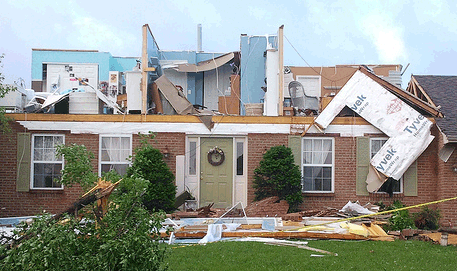Is Citizens Inflating Replacement Cost Values
On Homes? FAIR revises lawsuit against Citizens Insurance  [Wed, February 22, 2012] As reported by 10 NEWS/WTSP.com, The Florida Association for Insurance Reform (FAIR) is filing an amended class action lawsuit against Citizens Insurance. [Wed, February 22, 2012] As reported by 10 NEWS/WTSP.com, The Florida Association for Insurance Reform (FAIR) is filing an amended class action lawsuit against Citizens Insurance.
The complaint, originally filed earlier this month, alleges the company
used a property replacement-cost estimator program called 360Value to artificially inflate costs and drive up yearly insurance
premiums. FAIR says the amended lawsuit will be filed shortly in Pasco County court. Citizens Insurance is run by the state and backed up
by Florida taxpayers. The lawsuit could mean millions for Florida homeowners -- especially in the greater Tampa Bay Area and
the Nature Coast, who have been forced to overpay with Citizens. What are your views on this class action? Do you have a policy with Citizens? What has your
experience been like?Would like to hear from you, so please don't hesitate to contact me.
Wed, February 22, 2012 | link
Are Insurance Companies Failing in their
Obligation to Provide Additional Living Expenses?
 [Mon, February 06, 2012] What if we need to move out
of the house while repairs are being done? This is a valid concern of a homeowner following a disaster that caused substantial
damage to his or her house. Will my insurance cover the cost? [Mon, February 06, 2012] What if we need to move out
of the house while repairs are being done? This is a valid concern of a homeowner following a disaster that caused substantial
damage to his or her house. Will my insurance cover the cost?
The simple insurance answer to that question is: “Well, you have
additional living expense (ALE) or loss of use (LOU) on your homeowner’s policy.” That is the coverage that will
pay for hotel costs or rental properties. As simple as that answer may seem, it is not simple at all. Let’s begin with the fundamental definition
of ALE. Additional Living Expense (ALE) provides coverage for ‘additional’ expenses of an insured that must live
elsewhere due to a loss to the insured residence by a covered peril. It pays only reasonable ‘excess expenses’
(above and beyond normal expense) until the property is habitable. Most policies will provide ALE when a civil authority prevents
access to the insured home due to damage to neighboring homes. Since policy forms are different from company to company, you should always consult your own
policy provisions or agent. Please note: Florida law does not require insurance companies to pay ALE up-front. The insurance
company may require you to keep receipts and submit them to the company to receive payment. Generally, most homeowners’ insurance policies
contain coverage for what is commonly called additional living expenses or ALE benefits. These benefits usually fit into a
category typically called “incurred” benefits. This means that the money will not be paid out up front but will
only be reimbursed as you spend it. It is a common misconception that if you have, for example, $10,000 in ALE benefits that means the insurance company
will write you a check for $10,000 to temporary live elsewhere. That is not the case. Once you begin paying to stay somewhere
else, your insurance company will pay you up to $10,000 for those expenses, up to a specific period of time that is stated
in your policy. To
be entitled to receive ALE benefits, a professional (engineer, medical expert, or a field professional) has to provide the
opinion that it is necessary for safety, health or other reasons that you move out of your home while the work is being done.
The only professional the insurance company has to abide by is their own. Now how often do you think the insurance engineer
states you need to move out? Hardly ever and that is why these benefits are some of the most difficult to obtain.
The Declarations Page of your insurance
policy will outline the amount available (if any) for ALE, and the policy will explain any special definitions, limitations
or exclusions. Keep in mind that if the cause of the damage to your home is not a covered occurrence, e.g., mold, the insurer
may not be liable for ALE. If you have to move out, make sure you have a clear understanding of your insurance policy's provisions.
My advice to all homeowners affected
by significant property damage is to speak with a licensed Public Adjuster with experience handling claims involving ALE and LOU reimbursements. Please feel free to contact me with questions you may have regarding ALE or any other property damage and insurance claim matters.
Mon, February 6, 2012 | link
|